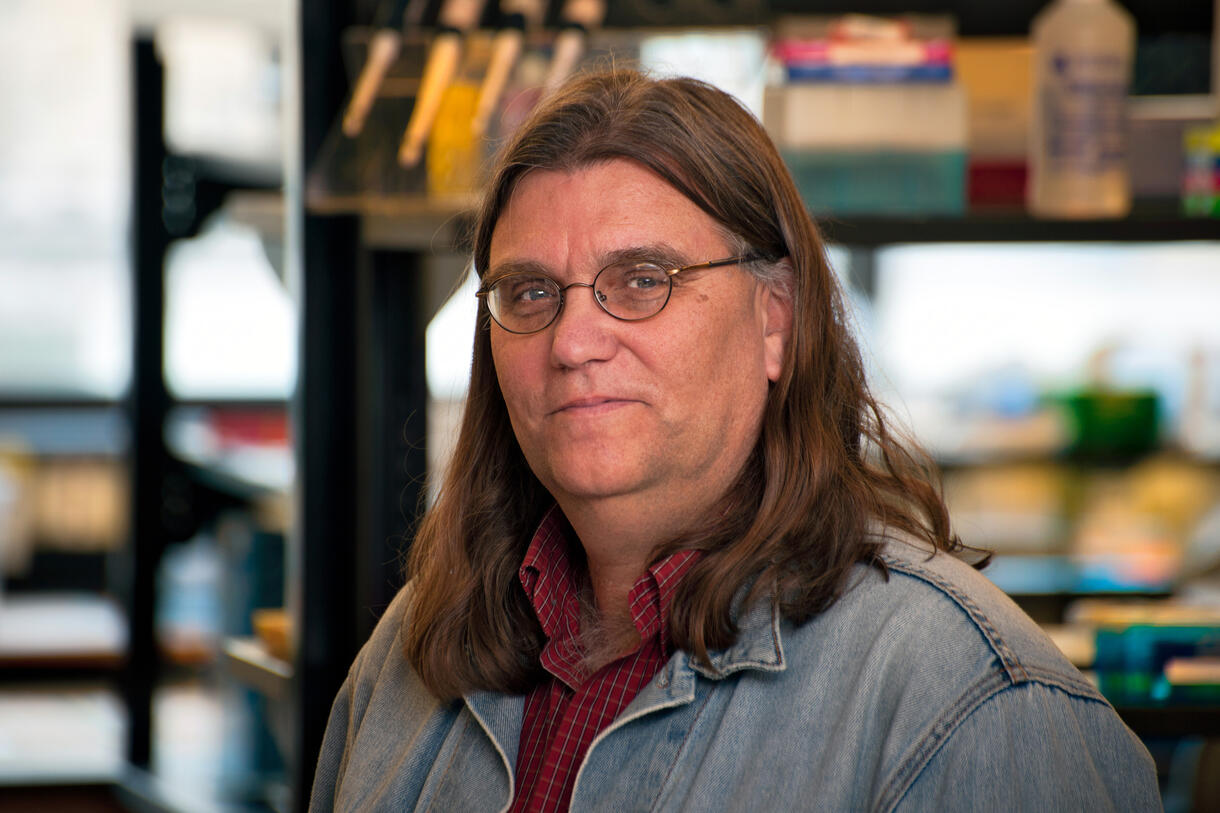Robert DeSalle
Curator, Molecular Systematics
Principal Investigator, Institute for Comparative Genomics
Professor, Richard Gilder Graduate School

Education
- Washington University, Ph.D, 1984
- University of Chicago, B.A., 1976
Research Interests
Dr. DeSalle works in molecular systematics, microbial evolution, and genomics. His current research concerns the development of bioinformatic tools to handle large-scale genomics problems using phylogenetic systematic approaches. Dr. DeSalle has worked closely with colleagues from Cold Spring Harbor Labs, New York University, and the New York Botanical Garden on seed plant genomics and development of tools to establish gene family membership on a genome- wide scale.
His group also focuses on microbial genomics, taxonomy, and systematics. In particular, they approach tree-of-life questions concerning microbial life using whole genome information. He also dabbles in Drosophila systematics.
Software
Concatenates randomly selected gene partitions and builds phylogenetic trees (MP with PAUP*/ML with RAxML) to examine tree-to-tree agreement of the conconcatenation path. Also calculates ML support per node and partition. See Narechania et al. (2011 Genome Biol Evol).
Requires: Perl, Bioperl, PAUP*, RAxML
Download:
Characteristic Attribute Organization System (CAOS)
Identification of diagnostic character states from molecular sequences that have been hierarchically organized (e.g. according to phylogenetic criteria). See Sarkar et al. (2008 Mol Ecol Resources)
Requires: Ruby, BioRuby, BLAST
Download: http://phylogenomics.sourceforge.net/caos/
Webserver: http://boli.uvm.edu/caos
Assembles multigene/multispecies alignment matrices and evaluates the relative significance of individual gene partitions within the context of a given phylogenetic hypothesis (in a maximum parsimony context; uses measures such as standard/Partitioned/Hidden Bremer support). See Sarkar et al. (2008 BMC Bioinform)
Download:
Automates gene orthology determination within a character-based phylogenetic framework. Classifies user-input query sequences into orthologous groups generated from complete genomes. Identifies diagnostic characters defining each orthologous group, as well as diagnostic characters responsible for classifying query sequences. See Chiu et al. (2006 Bioinformatics)
Download: http://nypg.bio.nyu.edu/orthologid/
Teaching Experience
Faculty Appointments
- Adjunct Professor, Ecology, Evolution, and Environmental Biology, Columbia University
- Adjunct Professor, Department of Biology and Center for Comparative Functional Genomics, NYU
- Adjunct Professor, Ecology, Evolutionary Biology, and Behavior, CUNY
- Yale University, Assistant Professor, Department of Biology, 1986–1991
Courses Taught
- Evolution (co-professor), Richard Gilder Graduate School, 2009–present
- Molecular and Genome Evolution, Richard Gilder Graduate School, 2009-present
- Introduction to Biology, Undergraduate level, NYU: 2004–2005
- Molecular Mechanisms—Animals, Graduate level, NYU: 2004–2005
- Bioinformatics, Graduate level, NYU: 2004–2005
- Introduction to Evolution, Graduate level, NYU: 2004–2005
- Evolution, Graduate level, Columbia University: 2004–2005
- Evolution and Journalism, Graduate level, Columbia University: 2004–2005
Graduate Advisees
30 students advised since 1998; recent students include:
- Sergios Kolokotronis, Columbia University
- Angelica Cibrian, Columbia University
- Chanda Bennett, Columbia University
- Francsica Almeida, NYU
- Anthony Deo, NYU
- Sam Crane, CUNY
Graduate Committees
Served on 50 committees since 1999; recent committees include:
- Zach Baldwin, Richard Gilder Graduate School
- Ed Stanley, Richard Gilder Graduate School
- Sebastian Kvist, Richard Gilder Graduate School
- Dawn Roje, Richard Gilder Graduate School
- Sergios Kolokotronis, Columbia University
- Angelica Cibrian, Columbia University
- Kevin Olival, Columbia University
- Ryan Kelly, Columbia University
- Anthony Deo, NYU
- Craig Starger, Columbia University